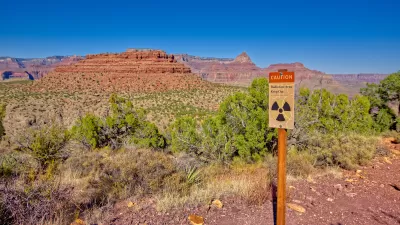With the devastating spill of oil in the Gulf, this post from The National Review suggests taking control over off-shore drilling out of the hands of government and putting it into the hands of private interests.
Iain Murray of the Competitive Enterprise Institute says private interests would be able to do more to protect the oceans from similar spills -- and even do better at preventing them.
"We need to move away from the crony corporatism that has characterized much of the nation's energy sector during the last century or so. It would be foolish to promise that market-based reforms would prevent another disaster, but they would be more effective than yet more meaningless bureaucracy. There are several reasons for this.
First, the existing government regulations have been counterproductive. They pushed energy companies offshore - miles and miles offshore. America is a resource-rich country, and unlike other resource-rich countries, we have locked up most of our resources so we can't use them. While the Gulf of Mexico holds about 44 billion barrels of oil in undiscovered reserves, according to Minerals Management Service (MMS) estimates, the continental U.S. has slightly more onshore. The difference is that we are allowed to explore and extract the offshore reserves, while it is extremely difficult to get permission to do the same on land. As a result, most exploration takes place offshore, where the consequences of a spill are so much greater."
Thanks to Grist
FULL STORY: Tapping the Well of Freedom

Planetizen Federal Action Tracker
A weekly monitor of how Trump’s orders and actions are impacting planners and planning in America.

Restaurant Patios Were a Pandemic Win — Why Were They so Hard to Keep?
Social distancing requirements and changes in travel patterns prompted cities to pilot new uses for street and sidewalk space. Then it got complicated.

Maui's Vacation Rental Debate Turns Ugly
Verbal attacks, misinformation campaigns and fistfights plague a high-stakes debate to convert thousands of vacation rentals into long-term housing.

In California Battle of Housing vs. Environment, Housing Just Won
A new state law significantly limits the power of CEQA, an environmental review law that served as a powerful tool for blocking new development.

Boulder Eliminates Parking Minimums Citywide
Officials estimate the cost of building a single underground parking space at up to $100,000.

Orange County, Florida Adopts Largest US “Sprawl Repair” Code
The ‘Orange Code’ seeks to rectify decades of sprawl-inducing, car-oriented development.
Urban Design for Planners 1: Software Tools
This six-course series explores essential urban design concepts using open source software and equips planners with the tools they need to participate fully in the urban design process.
Planning for Universal Design
Learn the tools for implementing Universal Design in planning regulations.
Heyer Gruel & Associates PA
JM Goldson LLC
Custer County Colorado
City of Camden Redevelopment Agency
City of Astoria
Transportation Research & Education Center (TREC) at Portland State University
Camden Redevelopment Agency
City of Claremont
Municipality of Princeton (NJ)





























